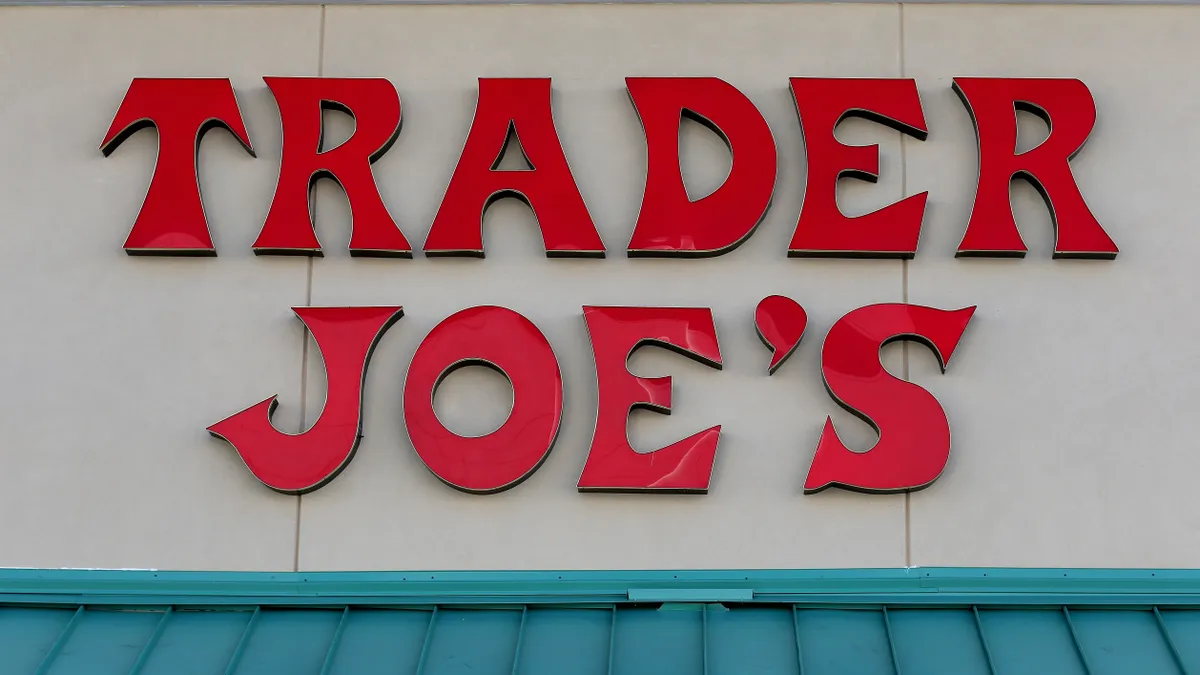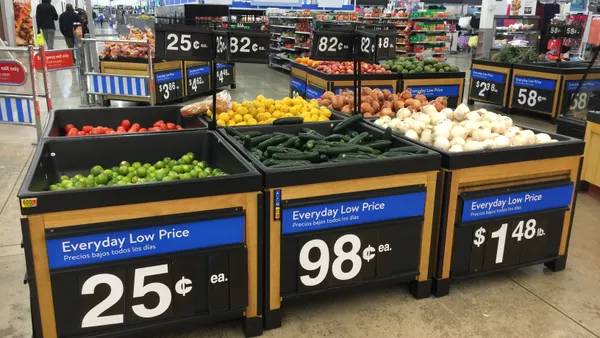Self-checkout terminals have swept across the grocery industry over the past few years, fueled by the demand for quick, contactless shopping trips. By one estimate, it’s now the dominant mode of checkout in grocery.
But don’t expect Trader Joe’s to join the party. In Trader Joe’s most recent podcast episode, which came out on Monday, CEO Bryan Palbaum and President Jon Basalone — both of whom are new to their roles — confirmed that the grocer has no plans to equip stores with self-checkout stations.
“That’s as false as false can be because we believe in people and we're not trying to get rid of our crew members for efficiency sake or whatever the, I don't know what the reasons are people put self-checkout in,” Basalone said, according to a transcript of the show.
Basalone said he recently had trouble operating a self-checkout machine at another retailer and had to call over an employee to assist. “I'm like, I do this for a living, and I can't get this thing to work.”
Palbaum added that he doesn’t want to burden shoppers with the task of bagging groceries. “Self-checkout is work,” he said. “I don’t want that.”
Palbaum and Basalone sat down for a Q&A with “Inside Trader Joe’s” just a month after their recent promotions. Palbaum took over the top spot at Trader Joe’s last month following Dan Bane’s retirement after a 22 years as CEO. This change also prompted the promotion of Basalone who went from president of stores to vice CEO and president of Trader Joe’s Company.
The grocery chain is known for standing firm on maintaining its traditional in-store experience, which includes steering clear of e-commerce shopping, as well. In a separate podcast episode released in May, Trader Joe’s marketing executives stated the additional costs that come with offering e-commerce is a major reason why the grocer doesn’t want to invest in it.
In Monday’s podcast episode, the executives also took aim at other technology innovations, like aisle-scanning robots, that grocers have added to their stores in an effort to save money and modernize the shopping experience. Trader Joe’s, they said, prefers to focus on product innovation and opening new stores.
“That's where the excitement comes from. You know, it's not crazy new ideas like the robot in the aisle that answers questions and helps to clean up spills,” said Basalone.
Palbaum and Basalone noted that keeping self-checkout terminals out of its stores is also beneficial for workers since it preserves their jobs. This message comes as Trader Joe’s has faced a unionization drive at some of its stores over the past year. So far, only four out of the company’s more than 500 locations have approved union representation, but the drive and the charges leveled by the union that represents those four locations, Trader Joe’s United, threatens to dent the grocer’s reputation for having a strong, desirable work culture.
The four unionized Trader Joe’s stores are located in Hadley, Massachusets; Minneapolis; Louisville, Kentucky; and Oakland, California. Most recently, the union Trader Joe’s United filed a complaint with the National Labor Relations Board claiming that Trader Joe’s asked job candidates about their stance on unions.
“Just filed some new charges after Hadley management got caught asking candidates about their union support in job interviews ... maybe it's time for corporate to update the ‘What Not To Ask’ portion of their interview guide,” the union posted in a note on X, the social media platform formerly known as Twitter, on Monday.














